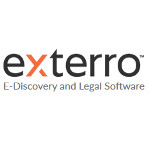Physician Non-Compete Agreements Present Challenges, Potential Controversy
 When it comes to physician employment agreements, non-compete provisions can be controversial and tricky, warns A. Kevin Troutman in Fisher Phillips’ Non-Compete and Trade Secrets Blog.
When it comes to physician employment agreements, non-compete provisions can be controversial and tricky, warns A. Kevin Troutman in Fisher Phillips’ Non-Compete and Trade Secrets Blog.
Such provisions can “restrict a doctor from practicing in a specified geographic area for a stipulated period of time after termination of their employment,” he writes. “The key question is when do such provisions become unreasonable? The analysis becomes even more complicated when factoring in the unique bond between patients and their doctors. After all, most patients’ sense of loyalty lies with their physician, not with a particular hospital, clinic or medical group.”





